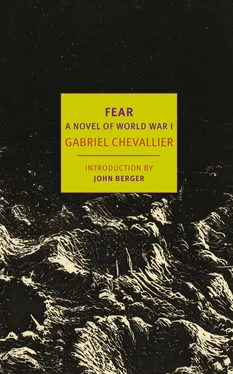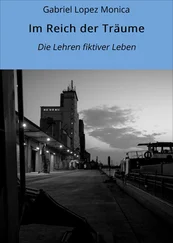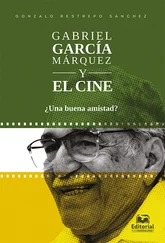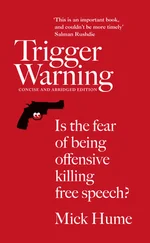For the written exam, we were given a prophetic theme: ‘Show the historical origins of the present war and predict its development, its conclusion and its consequences.’ To exhaust this vast subject, we were shut away for three hours. I made up for my scant knowledge of history with a lyricism borrowed from our most eloquent patriots: I derided the Central Powers, exalted our own courage and that of our allies, and concluded with a swift victory that would astonish the whole world and save it from barbarism. This brilliant piece of work put me in fourth place out of five hundred candidates, just beside a former companion from school, a very talented pupil who already had a place at the Ecole Centrale Paris. I thought I was through.
But there was still the oral. On an icy day, in the peculiar outfits already described, we were assembled on the training ground. After a long wait, a car drew up with flags on its bonnet. From it stepped a colonel who strode forward with that masculine assurance that comes from the certainty of never being contradicted. With his stiff moustache, bushy eyebrows, and the tanned complexion of a man who has spent a lot of time outdoors doing very little, this superior officer exuded energy. He sought it, too, and clearly felt it could be distinguished by how fiercely orders were barked on a parade square.
With an eye accustomed to judging men by the shine on their boots and buttons, the length of their hair, and their ability to stand in line, he surveyed our ranks, and decided:
‘We are going to find out who has military aptitude!’
The test began straight away. We were instructed to put a section through various manoeuvres. Not having the faintest idea how to do this, we were extremely awkward. However, since this test had begun with those who were top so far, after two hours of demonstration the men who had almost failed the written exams finally managed to imitate the false tone that lends power to a command. When it was over, an officer held out a package of scripts to the colonel.
‘Here are the essays, sir.’
‘Never mind the paperwork, the decision is made!’ replied the perspicacious leader.
And the next day twenty candidates were named, all carefully chosen from the bottom.
The decision of this colonel who was such a great connoisseur of men put an end to my ambitions and relegated me to the rank of private, a rank which I resolved — as my own revenge against stupidity — never to change. It was then that I was automatically selected to join the squad of men training to be corporals, a squad where I was forced to remain despite my protests. Luckily I found many of my former fellow students there and we enjoyed our time together when we were not on exercises. This camaraderie was the only benefit I derived from it, for we were never made corporals.
That is why, after a year of army life, I am still a private. Many people are in the same position, men who would have been able to do better if they had been better employed. I regret nothing, but it should be recorded that it was the army, in the person of one obdurate colonel, which refused my well-meaning offer.
Searching through my memories I find something that I had forgotten and which, at the time, annoyed me. Today I see it in a different light and regret my anger.
I had been with the regiment for three weeks when I was summoned to the company office. There I found our old captain, a rather paternal figure, who had a question to ask me.
‘What’s the matter, my friend, is something wrong?’
‘Not at all, sir,’ I replied in astonishment.
‘Really? Quite sure?’
‘Absolutely sure!’
‘So tell me then, what is the meaning of this letter?’
I read it:
‘ Monsieur le Commandant , I am taking the liberty of writing to you about my grandson, Private Jean Dartemont. I have looked after this boy for a long time and he has always been delicate. I am certain that he could not bear the strain of a campaign. It is very unfortunate that no one is thinking of the health of our children during these sad times, and instead people take advantage of their enthusiasm and their lack of experience. Only people who are strong should be sent to war, and not young people who are too frail and are prey to violent emotions, who will not be of any use at all over there. Everyone should serve the nation according to his abilities and I am sure my grandson, who has been well educated, will be much more help working in an office. I know that the child will not dare to complain, and that is why, given my age and the misfortunes that I have witnessed over the years, I am writing to you, sir, so that in the light of his feeble constitution you may take the necessary steps…’
I shrugged my shoulders, with a grin.
‘So?’ demanded the captain.
‘A grandmother’s exaggerations. I am really not that weak!’
‘And you have no complaints? There is nothing you need?’
‘Nothing at all, sir.’
‘Very good. Off you go then!’
Smiling, he watched me leave. I was furious at this clumsy meddling in my life, and at the thought that anyone could think I had encouraged my grandmother to intervene on my behalf. ‘She’s always been the same, always scared of everything!’ I muttered. I remembered all the warnings she used to give me when I stayed with her in the holidays, how anxious she was when I fired my little pistol at the bottom of the garden, or when I went across the river in a boat. I had to hide in order to go swimming, and also to avoid going to Mass. ‘When will they leave me alone?’ I asked myself, thus confusing her with the rest of the family, something I did not usually do, for I was grateful for her gentle, heartfelt affection, however anxious it may have been.
Today I am ashamed of my anger. Writing as she did, my grandmother was certainly far from being a true Spartan, and no doubt her confessor could have chided her for a lack of Christian resignation. But now I can appreciate that her nervousness in the face of what was going on was more human, closer to the truth, than all the fine poses of people for whom courage cost precious little, since they exercised it at others’ expense. Her faltering heart allowed her to imagine what war would be like for me, while I had no idea, and she dreaded to think of those she loved suffering or being in danger. She put my safety above all vanity, my life above all conventions. And her letter, which my ignorance had made appear ridiculous, now seems to me to be the best reason that this dear old woman has given me to cherish her.
I am always either happy or bored: there is nothing in between. The only things I can do well are those that I enjoy and I can only enjoy things where I use my brain. Army life makes fewer demands on the brain than any other activity. Necessarily so, because it allows the army to swell its ranks with more and more soldiers, and because it can easily reconstitute itself once they’ve been decimated. ‘Atten-shun!’ — the army’s entire strength rests on that command, on silent obedience which destroys the capacity for rational thought. You can see why it is vital. What would become of the army if soldiers had the idea of asking generals where they were leading them and then started arguing? It would be an embarrassing question for a general, for no leader should ever have to answer an inferior with ‘I don’t know any more than you do’.
After a year of army life, I have come to the conclusion that I’m a bad soldier and I regret it, just as I once regretted being a bad pupil. I am simply unable to submit to any rule. Should I blame myself? Is the fact that I have never accepted the principles that I’ve been taught a serious failing? I usually think that it is something good, and that it is the principles that are terribly wrong. But when I see so many people lined up against me, certain of their convictions, I sometimes have my doubts: I have my weaknesses just like everyone else and I give way to public opinion… I am afraid of being unfit for a war which asks for nothing save passivity and endurance. Would I not feel easier if I was a wholehearted combatant, like all the others (but have I ever actually met any?), fighting fiercely for his nation and certain that his god will reward him with indulgences for the death of each enemy he kills? Unfortunately I am quite unable to do something if it does not make sense to me, and the rules that various guardians have tried to impose on me never make sense. My former schoolmasters took me to task for my independence; later I understood that they feared my judgement and that my adolescent logic was raising questions that they had chosen to avoid. But today the guardians are more powerful, and the people in that role may have me killed.
Читать дальше












